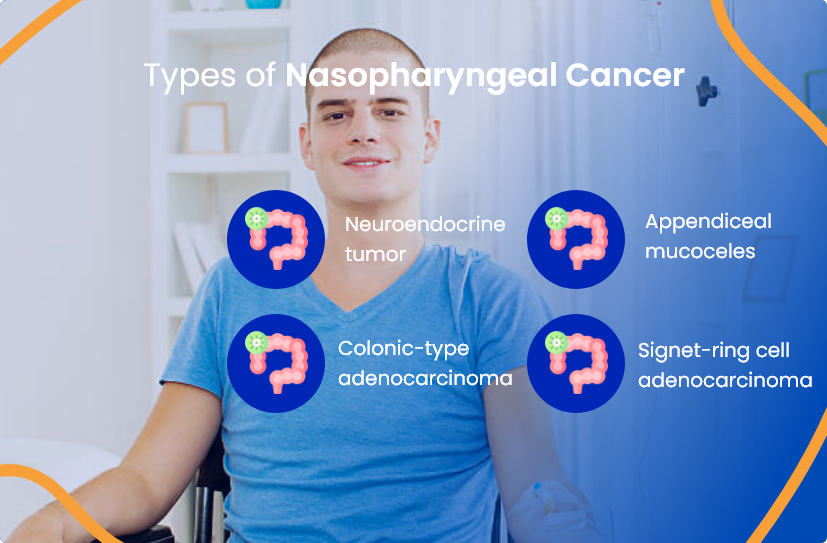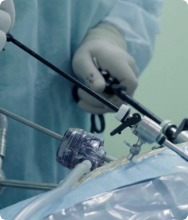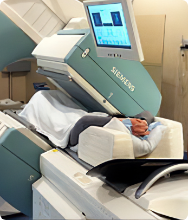
Book a Consultation
Thank you!
Your form has been sent successfully.

The appendix is a small tissue pouch in the abdomen. It is a part of the gastrointestinal (GI) tract that absorbs nutrients and eliminates waste from the body. The exact function of the appendix is unknown, but some experts believe it has something to do with immune function. Appendix cancer (also known as appendiceal cancer) develops when healthy cells in the appendix grow abnormally. It is a rare cancer that affects about 1 to 2 people out of every one million.
Tumors that begin in the appendix can be of several types. They are as follows:

It starts in the hormone-producing cells that are usually present in small amounts in almost every organ in the body. Appendix neuroendocrine tumors are most commonly found at the tip of the appendix. Neuroendocrine tumors account for approximately half of all appendix tumors.
Mucoceles are appendix wall swellings or sacs that are filled with mucous. A mucocele can occur from various benign to malignant conditions in the appendix. Mucinous cystadenomas and mucinous cystadenocarcinomas are two of these conditions. Mucinous cystadenomas are noncancerous and do not spread, whereas mucinous cystadenocarcinomas are malignant and can spread to other parts of the body.
These tumors form near the base of the appendix. They have many similar symptoms as colorectal cancer tumors.
This type of appendix tumor is rare and considered more aggressive and difficult to treat than other types of adenocarcinomas. It's called signet-ring cell adenocarcinoma because the cell appears to have a signet ring inside it under a microscope.
Appendix cancer patients may experience the following symptoms or signs:
 Pain in the abdomen or pelvis area
Pain in the abdomen or pelvis area
 Bloating
Bloating
 Appendicitis (inflammation of the appendix)
Appendicitis (inflammation of the appendix)
 Ascites (fluid in the abdomen)
Ascites (fluid in the abdomen)
 Increase in waist size
Increase in waist size
 Changes in bowel function
Changes in bowel function
 Feeling full soon after starting to eat
Feeling full soon after starting to eat
Sometimes, the patients may not have any of these changes. Alternatively, the symptom could be caused by a medical condition other than cancer.
Each patient's treatment will be unique. To determine the best approach, consult with an expert in appendiceal cancer treatment. If looking for "an appendix cancer specialist near me" on the web, do quality research before finalizing one. Ask family and friends for doctor recommendations and look for credible online reviews.
One may discuss the following treatment options with their doctor:

Surgery may be performed to remove the appendix as well as any other organs or tissue in the abdomen. Affected areas may include parts of the intestine, colon, and peritoneum.
Chemotherapy is used to kill cancer cells when appendiceal cancer has spread to other parts of the abdomen.
In some cases, a method of administering chemotherapy known as hyperthermic intraperitoneal chemotherapy, or HIPEC, is used. During this treatment, hot chemicals are used to wash the inside of the abdomen.
Appendix cancer is frequently diagnosed after an appendectomy (removal of the appendix) for appendicitis. If the doctor suspects appendix cancer, they may recommend additional testing. Among these tests are:

If one has the symptoms of appendiceal cancer, the doctor will use scans such as CT and MRI to look at the appendix.

In this procedure, an instrument is inserted in the abdomen to view the organs in the area. If doctors notice tumors, they may perform a biopsy of the peritoneum (the membrane that lines the organs in the abdomen) to determine whether the cancer has spread.

In a biopsy, a small amount of tissue is removed for examination under a microscope. Appendix biopsies are difficult to perform. As a result, they are usually performed on tissues in the body where cancer has spread.

These tests are only used to diagnose neuroendocrine tumors. A small amount of a radioactive, hormone-like substance is injected into a vein. Then a special camera is used to show where the radioactive substance accumulates.
Our appendiceal cancer experts are dedicated to providing outstanding patient care through effective and personalized treatment plans. Our team includes some of Florida's most experienced providers who work hard to create a positive environment for patients and their families.
The following are our providers who you can consult at ACTC:

Hematology/Oncology

Hematology/Oncology

Radiation Oncology

ACTC's clinical team has more than two decades of cancer treatment experience. We are dedicated to providing patients with personalized care at all stages of their treatment. Our facility includes an infusion room, medical and radiation oncology exam rooms, and advanced appendix cancer treatment technology.
Schedule a consultation by calling
 352-345-4565
352-345-4565
The signs of appendiceal cancer may include bloating, pain in the abdomen, changes in bowel movements, increase in waist size, appendicitis, and ascites.
Appendix cancers and tumors (neoplasms) are extremely rare, with an estimated incidence of 0.15-0.9 per 100,000 people.
No, appendiceal cancer is not known to run in families.
Schedule a consultation by calling
 352-345-4565
352-345-4565